police brutality

I’ve interviewed celebrities and entertainers before, and my main complaint is always this: They tend to dodge tough topics, which then results in pretty dull conversations.
So when I got on the phone with Christian hip-hop artist Dylan Phillips, whose stage name is nobigdyl., I thought getting him to say anything interesting would be about as hard as fishing for catfish.
But I didn't have to fish long before I realized that nobigdyl. was more than willing to tackle difficult subjects.
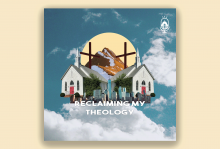
Finding Faith Again
With breadth and depth, the Reclaiming My Theology podcast seeks to “take our theology back from ideas and systems that oppress.” Host Brandi Miller interviews diverse thinkers who are building a freer faith and traversing heavy topics, such as purity culture, with candor and diligent hope. reclaimingmytheology.com
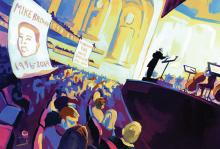
IN FALL 2014, the St. Louis Symphony Orchestra performed Brahms’ Requiem on a Saturday evening two months after the murder of Michael Brown Jr., at a concert hall about 10 miles from Canfield Green, where Brown was killed and his adolescent body left out in the Missouri August sun for four and a half hours.
That summer and fall, people in the city and county of St. Louis lived in the tension of waiting — we were waiting for a grand jury to make a decision. Not a verdict about the officer’s guilt: The grand jury was tasked with deciding whether this murder was even a murder at all — whether anything happened on Aug. 9 that could even be considered maybe a crime. Maybe worth investigating. Or whether it was just a regular day’s work.
As intermission was ending and folks were back in their seats, just as the orchestra was regathered and the conductor was raising his baton, a small group of ticketholders in the audience stood up and sang. In singing, they asked the audience, made up largely of people who could choose whether or not they were impacted by the grand jury’s decision that loomed over the city like the shadow of death, to make a decision of their own. They stood up, one by one, and joined their voices in an old labor song: “Which side are you on, friend, which side are you on?” they sang. “Justice for Mike Brown is justice for us all. Which side are you on, friend, which side are you on?” They hung banners made of bedsheets over the balcony; one that echoed the piece being performed that evening was painted: “Requiem for Mike Brown, 1996-2014.”
These protesters brought this question — this disruption — into a space that could’ve kept it to business as usual. They sang the two refrains in repetition, almost like a Taizé chant, for several minutes, then they left the hall together, chanting a chant that at the time was still brand-new to most Americans: Black Lives Matter.
The disrupters left to a mix of silence and applause from the audience and the musicians. The concert continued, but the question hung in the air. It’s the same question that hangs in the air of many of Jesus’ disciple-calling stories, and it’s certainly the question that pervades Matthew’s telling of Jesus’ good news.
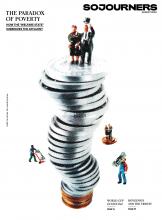
How the “welfare state” is designed to subsidize affluence rather than fight poverty.
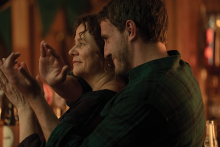
Communal Sin
The psychological thriller God’s Creatures follows a mother who chooses to hide her son’s secret, a decision that has damaging ripple effects in her remote fishing village. The film explores how a community’s complacency in covering up sin can systematize and amplify evil.
A24
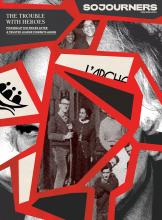
Charismatic leaders such as Jean Vanier can inspire and transform us. But when these leaders commit abuse, how do the movements they ignite pick up the pieces?

PRIMARILY SET IN 1930s Denver, Kali Fajardo-Anstine’s debut novel, Woman of Light, is a deeply immersive story about the survival and legacy of an Indigenous Chicano family. When a violent mob attacks him for having a relationship with a white woman, Diego Lopez flees the city, leaving his younger sister, Luz Lopez, with their aunt Maria Josie. But working as a laundress isn’t enough to keep a roof over their heads, so Luz gets a job as a typist for a local Greek lawyer. When a cop kills a Mexican factory worker, Luz’s boss David takes on the case, and Luz is exposed to the inner workings of an unjust system.
Epic in scope, the novel covers five generations. While we focus mainly on Luz and Diego’s timeline in the 1930s, we also get brief glimpses of the people who came before them. There is Desiderya Lopez, the Sleepy Prophet of Pardona Pueblo, who finds an abandoned newborn and raises him as her own. This child is Pidre Lopez, who later departs Pardona after Desiderya’s death. In the town of Animas, Pidre falls in love with the widow and sharpshooter Simodecea Salazar-Smith when he recruits her for his performing theater. Together, they run the vibrant business and raise their daughters Sara and Maria Josie until tragedy strikes with the arrival of white prospectors.

1. Character matters
In 2016, we heard the recording of Donald Trump bragging that he could grab women by the genitalia and kiss them without consent. This reveal of sexual abuse was a blinking red warning sign: “No character!” But most white American Christians voted for him anyway. Now hundreds of thousands of Americans are no longer with us. Children are dead, separated from their parents, neglected and abused in our detention centers. Police continue to kill unarmed Black people with impunity. Evidence shows that wherever there is violence against women, there will also be violence against ethnic minorities and the land. Character matters.
2. Our votes matter
If you ever doubt that, remember 2020: body bags, 175 cities on fire, food lines, closed businesses, fears for the future, the president having tear gas shot into a crowd so he could walk across the street and hold a Bible in front of a church he doesn’t attend. Let us learn that a non-vote is a vote for the winner. In a democracy, votes have the power to bless or curse millions. It is our civic duty to approach elections as informed citizens. It is our Christian duty to leverage elections to protect the least of these.
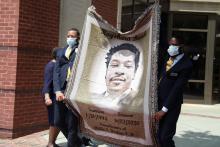
Whether their blood cries out from Valdosta Ga., or the Georgia Diagnostic and Classification Prison, their cries cannot go unanswered.
WE’RE CLEARLY NOT yet in a post-pandemic world, and almost everyone seems well-disillusioned of any pretense that we live in a “post-racial” time. But, as Julie Polter explains in her cover essay, the COVID-19 pandemic—and the worldwide protests in response to the other pandemic of police brutality and systematized racism—has led to actions once thought unimaginable. From NASCAR to the Southern Baptist Convention, a surprisingly wide range of people and institutions seem suddenly aware of their own complicity in symbols and structures of injustice—and more and more white people express their recognition that police brutality isn’t, after all, the isolated behavior of a few “bad apples.”

In Exodus, the Egyptians shed innocent blood. Then God made this blood visible for all to see.

The COVID-19 pandemic has now laid bare what is still “acceptable” to white America, including many white churches. The unequal suffering of this plague has been verified by the statistics.
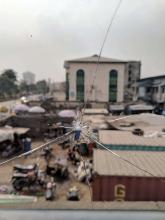
For more than a decade, reform of Nigeria’s congested prisons has stalled, becoming a perennial problem for successive governments. Courts are bogged down with a huge backlog of cases, delaying the delivery of justice. Corruption among judicial officers only makes matters worse inside the prisons.
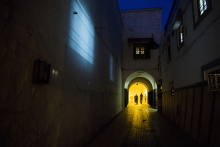
The European Union has pressured Morocco to curb migration in recent years. Since 2014, they have committed to disbursing €232 million for migration-related support. But as funding has increased, so has the violence of law enforcement. Five of the migrants I spoke to referenced personally experiencing police brutality.
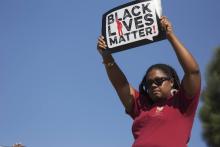
Pained and angry religious leaders warned Fort Worth, Texas, police they would scrutinize the investigation of an officer who shot and killed a 28-year-old black woman inside a home where, a family lawyer said, she had been playing video games with her 8-year-old nephew.

Guyger, 31, could face life in prison for the slaying.
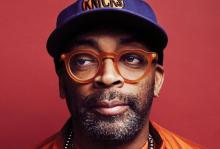
“Always do the right thing.”
“That’s it?”
“That’s it.”
“I got it. I’m gone.”
DA MAYOR (Ossie Davis) and Mookie (Spike Lee) share this exchange in Lee’s film Do the Right Thing, which turns 30 this summer. Three decades on, Lee’s masterpiece on racism and community still stands out for its trailblazing voice. Lee, and the film that blasted him into broad public consciousness, continue to inspire powerful work by filmmakers of color, including Dear White People, Get Out, and The Hate U Give.
It’s undeniable that Do the Right Thing’s bold style and perspective are what helped it become iconic. Its depiction of the police killing of black men also remains powerful and, as it turned out, prescient. The film almost seems to have predicted events that unfolded 25 years later following the deaths of Michael Brown, Eric Garner, and so many others.

For these characters, and for many black people in America, this is the way life is. Thomas’ novel won a plethora of praise and awards after its 2017 release for combining the social realities of life as a young black woman in contemporary America with a heartfelt coming-of-age narrative that resonated with a diverse array of readers. George Tillman Jr.’s film adaptation of the book, out now, admirably walks that same line. From every aspect, the film shows great respect for its source material, with an excellent script and stunning cast who clearly care about the story they’re telling.

America is still led by an apathetic majority void of compassion, empathy, and sympathy. A majority unable and unwilling to confess their biases, hate, phobia, and toxicity, making themselves apathetic to the reality of African Americans. From their perspective intentional and toxic discrimination, racism, and police practices is not their problem; they have no role in this plight and degradation.
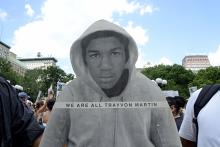
America’s allegiance is not to black and brown bodies. It is bound to prejudice, racism, militarism, and violence predominantly against people of color. And while Black Lives Matter rose as a voice and movement for black lives, the NAACP’s Youth & College Division amplified its voice, and black Americans across this nation cried out, the American majority kept quiet.